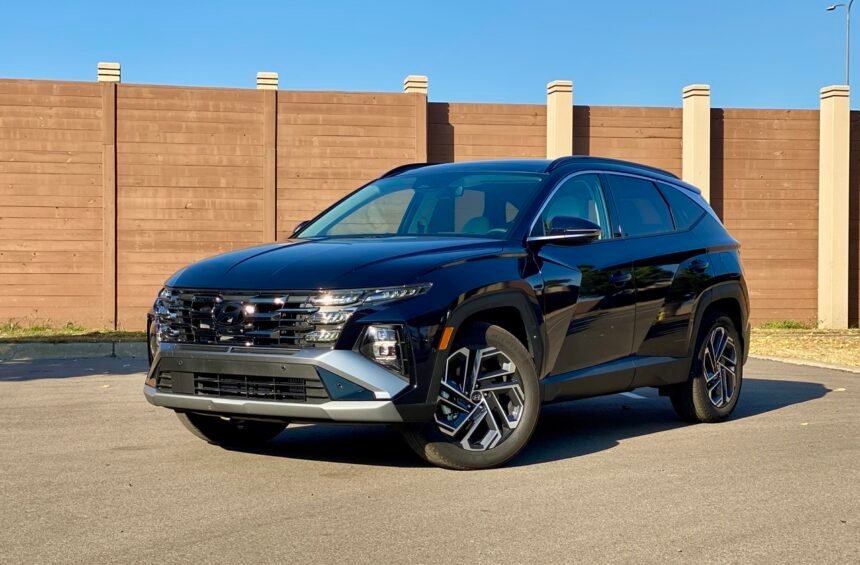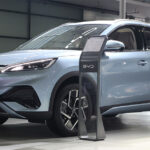Tucson: A Comparison of Hyundai’s Crossover SUVs
When it comes to choosing between the Hyundai Kona and the Tucson, both vehicles offer a compelling set of features and options. While they may come from the same automaker, each SUV has its own unique qualities that cater to different preferences and needs. Let’s take a closer look at the key differences between the two models.
Hyundai Kona: A Compact and Affordable Option
The Hyundai Kona is a smaller SUV that is perfect for city driving and urban lifestyles. With a starting price in the mid-$20,000s, the Kona offers a budget-friendly option without compromising on features. The 2025 Kona comes with a range of standard equipment, including automatic emergency braking, cruise control, alloy wheels, and a 12.3-inch touchscreen with wireless Android Auto and Apple CarPlay.
For those looking for a bit more power and luxury, the Kona N-Line and Limited editions offer additional features such as turbocharged engines, synthetic leather upholstery, and power sunroofs. The Kona Electric model is also available for environmentally-conscious drivers, priced at around $42,000.
Hyundai Tucson: Spacious and Versatile
In comparison, the Hyundai Tucson is a larger SUV with a starting price of about $30,000, offering a roomier interior and more standard features. The Tucson comes with cloth seats, power features, and a 12.3-inch touchscreen with wireless Apple CarPlay and wired Android Auto.
For those looking for additional comfort and convenience, the Tucson SEL with the Convenience package adds wireless smartphone charging, a 10.3-inch digital gauge cluster, a power sunroof, and synthetic leather upholstery. The hybrid powertrain option with standard all-wheel drive provides a balance of performance and efficiency, priced at around $35,000.
Size and Space Comparison
When it comes to size and space, the Tucson clearly has the edge over the Kona. The Tucson’s larger dimensions result in a more spacious interior, with generous legroom for both front and rear passengers. The Tucson also offers more cargo space, with 38.7 cubic feet of storage room behind the back seat and 74.8 cubic feet with the rear seats folded down.
In contrast, the Kona is a compact SUV that offers a comfortable interior for four adults, but with a smaller footprint. The Kona has 38.2 inches of rear-seat legroom and up to 63.7 cubic feet of cargo space behind the front seats.
Conclusion: Choosing the Right Hyundai SUV
Ultimately, the choice between the Hyundai Kona and Tucson comes down to personal preference and priorities. If you value affordability, compact size, and city-friendly features, the Kona is a great option. On the other hand, if you prioritize space, comfort, and versatility, the Tucson may be the better choice.
Both SUVs offer a range of trim levels and options to suit different needs and budgets, making them attractive choices within the competitive crossover SUV market. Whether you opt for the Kona or the Tucson, you can expect a reliable vehicle with a great warranty and a host of standard safety features.
The 2025 Tucson, on the other hand, earns a TCC Rating of 7.2 out of 10, thanks to its more spacious interior, better fuel economy, and overall more refined driving experience. The Tucson also offers a wider range of safety features and has a more upscale interior compared to the Kona.
Ultimately, the choice between the Hyundai Kona and Tucson comes down to personal preference and priorities. If you prioritize fuel economy and safety features, the Tucson may be the better choice for you. However, if you prefer a more compact size and sportier performance, the Kona could be the right fit. Both vehicles offer a good value for their respective segments, so it’s worth taking a test drive in both to see which one suits your needs best.
The Hyundai Tucson Hybrid emerges as the clear winner when it comes to choosing a reliable and efficient commuter vehicle. While the electric Kona is also a strong contender in this category, the Tucson Hybrid offers a spacious and comfortable driving experience that is hard to beat.
With a Total Car Score (TCC) rating of 7.0 out of 10, the Tucson Hybrid stands out for its combination of fuel efficiency, interior comfort, and overall performance. This hybrid SUV is not only practical for daily commuting but also offers a luxurious and refined driving experience.
One of the key advantages of the Tucson Hybrid is its spacious interior, which provides ample room for passengers and cargo. Whether you are running errands around town or embarking on a long road trip, the Tucson Hybrid offers a comfortable and versatile driving experience.
In terms of pricing, the Tucson Hybrid may have a slightly higher price tag compared to the electric Kona. However, the additional cost is well worth it for the enhanced features and performance that the Tucson Hybrid offers. From its smooth handling to its impressive fuel efficiency, the Tucson Hybrid delivers a superior driving experience that is sure to impress even the most discerning drivers.
Overall, the Hyundai Tucson Hybrid is a top choice for those in search of a reliable and efficient commuter vehicle. Its spacious interior, luxurious amenities, and impressive performance make it a standout option in its class. Whether you are navigating city streets or hitting the open road, the Tucson Hybrid is sure to deliver a driving experience that is both enjoyable and practical.







